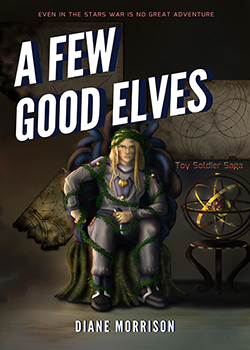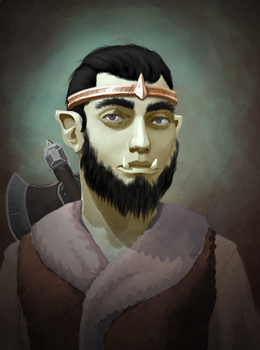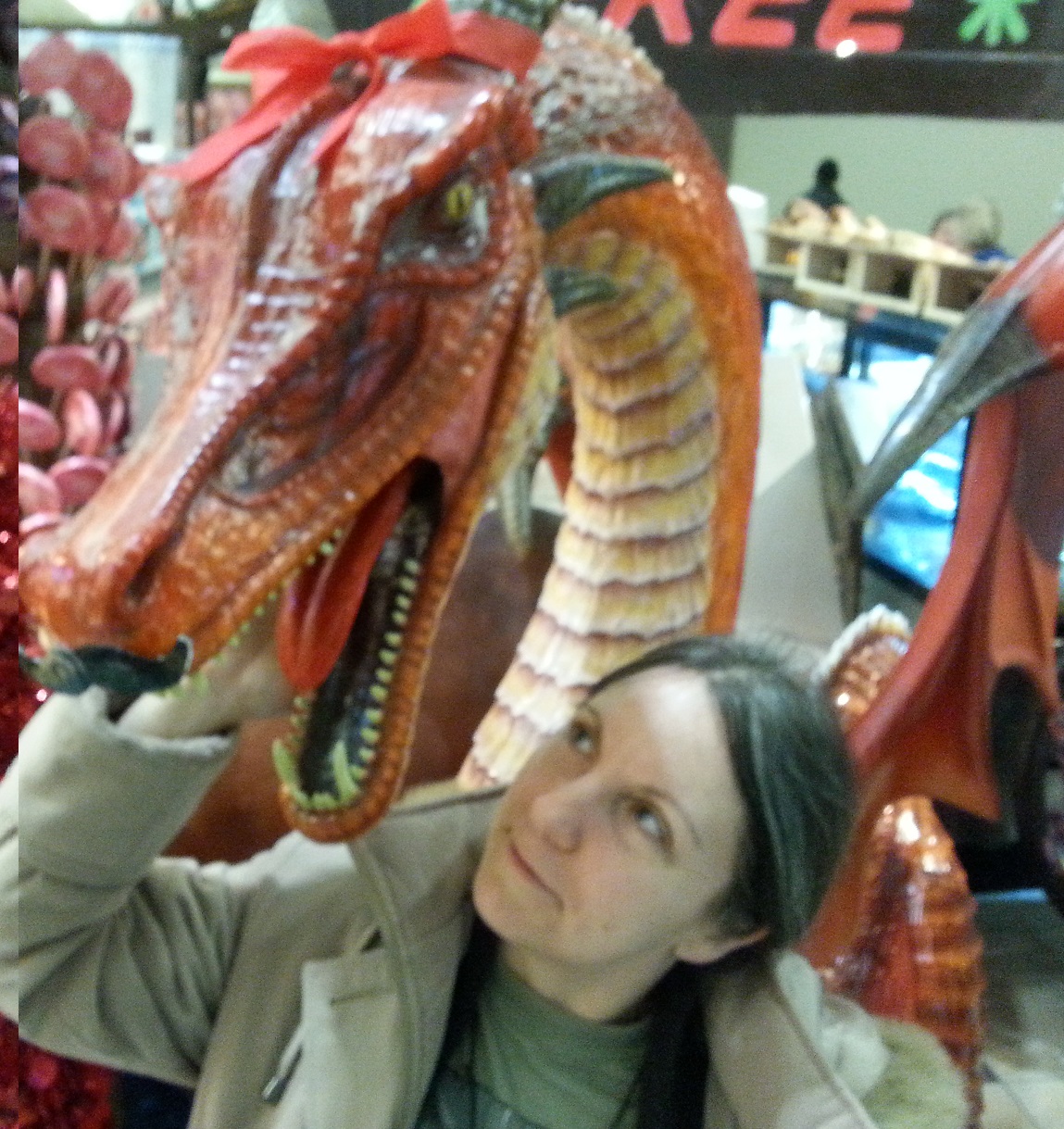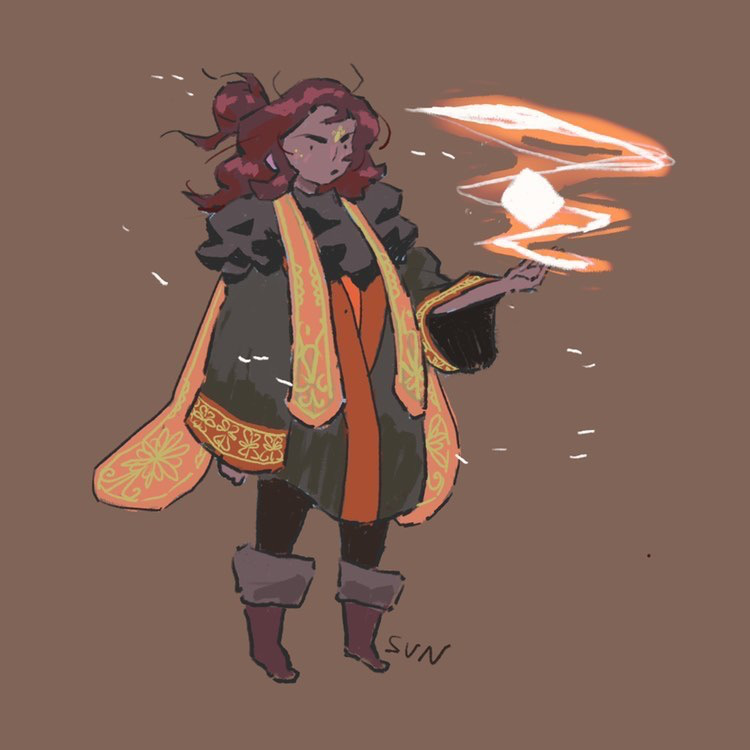Elatha | ᛖᛚᚨᚦᚨ Élatha (eh-LA-thah | /e 'la θa/)
War Chief of the Solstice Pact, founder and High Chief of the Fomorian Empire
“Elatha was the founder of our people,” he explained, “the one who taught us to be more than common orcs. It is said that he was the son of Balor.” He hesitated and then asked, “You do know who Balor is, don’t you?” Shaundar nodded. “Elatha was a writer and a scholar,” Dorin Bloodfist continued. “Most Balorians cite his earliest work, ‘A Balorian Manifesto,’ but I am rather fond of a later book, ‘The Art of War.’ It is not dissimilar from your ‘Song of the Blade,’ I think. He wrote, ‘Understand your enemy as if you were wearing his skin. Learn what drives him, why he fights and what he believes in. Then you will understand what it is that he believes is worth dying for. Only then will you be able to achieve true victory.’”Elatha was the founder of the Balorian people, and quite possibly, the saviour of all starfaring Fomorians. Known for his skill with a pen as well as his skill with an axe, Elatha transformed the course of history for the Fomorian peoples, bringing the scattered tribes and peoples out of the ashes of a disastrous war, and binding them together into a cohesive, technologically advanced civilization. He is revered by the Balorians and the subject peoples of the Fomorian Empire, who frequently quote from his extensive literary works.Clan Champion Dorin Bloodfist
Mental characteristics
Personal history
Early Life
Elatha was born the day the First Interstellar War was declared. Some say he was the bastard son of Guntur Ironlaw , the Zabû'Kĕgh (High Chief) of Harakrryrrsû; others, that he was the son of Balor, the creator-god of the orcs. It is also said that his mother was Y'Evva Bloodfist. It is believed that his mother did not survive the birth. No official record remains, but in Elatha's own writings, it is clear that he thought of Guntur Ironlaw as his father, regardless of his actual parentage. Elatha always small for an orc, and sickly as a child. The Ironlaw High Chief provided for the boy financially, but did not care to associate with him. Little is known of Elatha's early childhood, except that he was raised in a temple of Cethlenn, the Den Mother and, based on his personal writings, bullied by his peers. While there are many stories of how he learned to outwit his childhood bullies, each more improbable than the last, scholars generally agree that the tale of Elatha and the Army Ants and the tale of Elatha and Bridge of Thorns , have at least a grain of truth. At the age of eight, Elatha was sent to live at the Temple of Balor in Harakrryrrsû's capital, because it was assumed that being so small, and so unfit for battle, that he would feel a calling to the priesthood. But he did not. Elatha's own writings suggest that he was resentful of being sent away without being given a chance to prove himself, and that he lacked the faith and devotion required of a priest. However, during that time, he studied and trained, using the Temple's extensive library as a way to improve his education and practice.Adolescence
When Elatha was twelve, the Temple of Balor was sacked by elven forces, and Elatha barely escaped with his life. He fled to the home of the Ironlaw family, where he was reluctantly received. While most orc boys receive their Zabak'Taârr at 15 or 16 years, Elatha, now 13 years old, demanded his on the spot. Guntur Ironlaw , who had returned home to rally his forces, honoured Elatha's wishes, and took him into the wilderness. Three days later, instead of emerging with the carcass of a large predatory animal, or turning up dead, Elatha came out of the jungle with his father's wounded body over his shoulders. The pair had been set upon by assassins, and a lucky shot had badly injured Guntur. Elatha's studies during his time as an acolyte had saved both of their lives. According to the High Chief's own account, Elatha had removed an arrow and stopped the bleeding, hidden both of them from the assassins, and had somehow outwitted or outfought the hunting band that pursued them -- and kept them both alive in the wilderness.Military Service
Upon completion of his Zabak'Taârr, Elatha joined the Harakrryrrsûvian military for his three years of mandatory service. By this time, the tide of the war had turned in favour of the elves, and the forces of The Solstice Pact suffered a series of decimating defeats. Elatha fought sortie after sortie, quickly gaining a reputation as a skilled tactician, but more often than not, he was required to regroup his flotilla or defend the Pact's fleet in retreat. Victories were short-lived, with the Avalonian Forces quickly recovering any small gains made. Elatha came to believe that the solution to the problem could not be found in battle--and yet, it was clear to him that the Avalonians were not in a "talking" mood. He also realized that unconditional surrender was not an option. The hate between elf and orc, gnome and goblin, was simply too strong, and submitting to the other side would result only in oppression--and, though he lacked the word for it, genocide. The leaders of the Pact, however, seemed determined to fight to the grim and bitter end.War Chieftainship
When Elatha's father was killed in the fighting near the end of the war, Elatha was only 15. However, by virtue of being Guntur Ironlaw's only surviving son, and the son of a noble of the royal family of the Empire of Grunrras, Elatha claimed the right to challenge for the Pact's War Chieftainship. Using his newly developed Dok'Kril fighting techniques, Elatha fought ten duels in succession in the ritual of the Holmgang, and won them all. His first command as War Chief was to order a massive regroup and retreat of the Pact's forces, bolstering their defenses. If they could not win, they could at least fight the Avalonians to a standstill, and thus improve the terms of their surrender. The Pact completely collapsed under this command. While the War Council recognized the wisdom and necessity of Elatha's strategy, the political leaders of the Pact's contingent nations could not countenance this. Elatha and his followers, including The Thirteen High Clan leaders of what was to become the Balorians, fled into exile, seeking a place where the Avalonians could not follow them.A New Homeworld
The Founders took their chances on a recently-discovered, but unexplored wormhole, which brought them to the Elathan System . Perfect for their needs, with a red sun and an inhabitable planet, they decided to make a new start there. The homeworld was named for their founder and leader. The planet of Elatha was a hot, stormy world, with dangerous wildlife, disease, and little natural edible flora. Famine threatened the new civilization in the first year, while Balorians founded clans in protected mountain strongholds, and daring raiders stole food crops, seeds, and edible fauna from the neighbouring Wyndsmere System . But despite its risks, their world turned out to be a blessing in disguise. Later exploration missions, sponsored by Elatha and the clan leaders, discovered that the system was the center of a wormhole nexus, allowing access to broad regions of Known Space. Once they had established themselves, the Balorians began to spread out and conquer the worlds around them, especially those with large Fomorian populations, under Elatha's direction. The goal was to form an empire, and a military complex, with the power to withstand the elves when they inevitably came into conflict again. While they were colonialists, Elatha and his followers also felt they had an obligation to take care of their conquered peoples. Often, their lives improved under Balorian rule; even if they were typically barred from the budding Empire's highest positions of leadership.Personal Tragedy
Elatha's closest friends and confidants, Korr Bloodfist and Urgoth Bloodaxe , were both killed in a disastrous assault on the world of Tarth when he was about 60. It is said that Elatha's rage was truly fearsome to behold, and only the intervention of his friends' widows saved the giants of Tarth from his wrath. Afterwards, he stepped down as War Chief, and the Balorians declared him their first High Chief . Writings from the time agree that he ruled his new Empire with, as Oltan One-Eye wrote, "wisdom born of deep sadness, and gentleness born of deep regret."Retirement
Throughout his life, Elatha left 13 volumes of written works. He and his advisors codified a common Orcish written language, and established a public Fomorian school system for all subjects of the Empire. In the tale Elatha and the Well of Mimir , it is said that Elatha, guided by Balor , made the journey to Niflheim to sacrifice an eye, and hang himself from Yggdrasil , to gain the knowledge of language and the runes, just as Odin and Balor themselves had done. Everyone expected Elatha to marry and raise a family, but he never did. Some say it was because he was "married to the Empire;" while others say it was because he did not want to leave a permanent dynasty, having seen the disadvantages of hereditary rule. A heretical theory suggests that perhaps he was incapable of siring children. However, the many children of Korr Bloodfist and Urgoth Bloodaxe all called him "Uncle," and by all accounts, they were very close. In his later years, Elatha came to rue some of the militarism of his youth. It was then he wrote "An Ode to the Blood of Heroes," which included one of his most famous quotes, "I hate war, as only a soldier can ."Death
Unusually for an old warrior, Elatha died peacefully in his bed at an advanced age, surrounded by his closest friends and their families. He was cremated on his ship, and his remains were gathered in a reliquary and enshrined in the great meeting hall the Thirteen established in orbit above their world, forever after known as the Tomb of Elatha. It is traditional for returning ships to salute the Tomb to this day.Gender Identity
Sexuality
Education
Don't forget that you can click on the blue compass on the left to access the Table of Contents at any time!

Want to read all of the Toy Soldier Saga fiction, even before the rest of the world does?Subscribe now!

- Right hand: Iron Axe of the Tâk'Darrak (Iron Champion), representing Elatha's service as War Chief of the Fomorians. Iron represents truth, honour, and strength.
- Left hand: A great tome, representing the volumes of wisdom Elatha left for his people to follow.
- Back: Spear of the High Chief , representing Elatha's tenure as the High Chief of the Fomorian Empire.
- Foreground: An orb of Starmetal, representing Elatha's mastery of starfaring.
- Right side: Drinking horn, representing generosity and hospitality.
- Crown: The royal crown of the Empire of Grunrras, which later became the royal crown of the High Chief of the Fomorian Empire.
- Armour: The red brigantine armour of a Balorian clan noble. Bronze symbolizes courage and self-sacrifice in Fomorian culture.
- Lapis embellishments: Lapis is associated with royalty in Balorian culture. There is lapis on the axe, the tome, the crown, and Elatha's eyes.
- Gold embellishments: Represents wisdom in Balorian culture.
- Vine-covered stone plinth: Represents the foundation of the Empire, and life coming out of death. By tradition, the vines are alive, not carved.
- Magical runes: The runes are written in Celestial script, and they read: ᛁᚻ ᛊᚣᛝ ᚾᛠᚵ ᛡᛝ ᚴᛁᚿ ᚺᚨᚱᚨᚲill shung nygh êng chign harak "I stand on (the) rock of honour." Legend says that the spell not only protects the statue, but the Fomorian Empire itself.
(7th Twelfth-Month, Year 86 Before the Founding)
The Works of Elatha
- A Balorian Manifesto
- The Way of the Warrior
- The Art of War
- Logistics
- A Brief History of the Fomorian Peoples (3 volumes)
- The Upraised Hand
- The Tactics of Space
- A Sea of Stars
- A Treatise on Orcish Ethics
- An Ode to the Blood of Heroes
- Visions (unfinished)









Heck yes to all of this. Nice, nice work. I love that we get to meet a heroic orc, which is something I wasn't expecting.
Thank you! Yes - my orcs are a bit different :D
Yeah, the more I thought about it after leaving the comment, I was like "But didn't I already know Diane's orcs were different?" I'm not sure which previous article I picked that up from (or maybe one of your livestreams), but I guess I forgot when I was posting the comment.